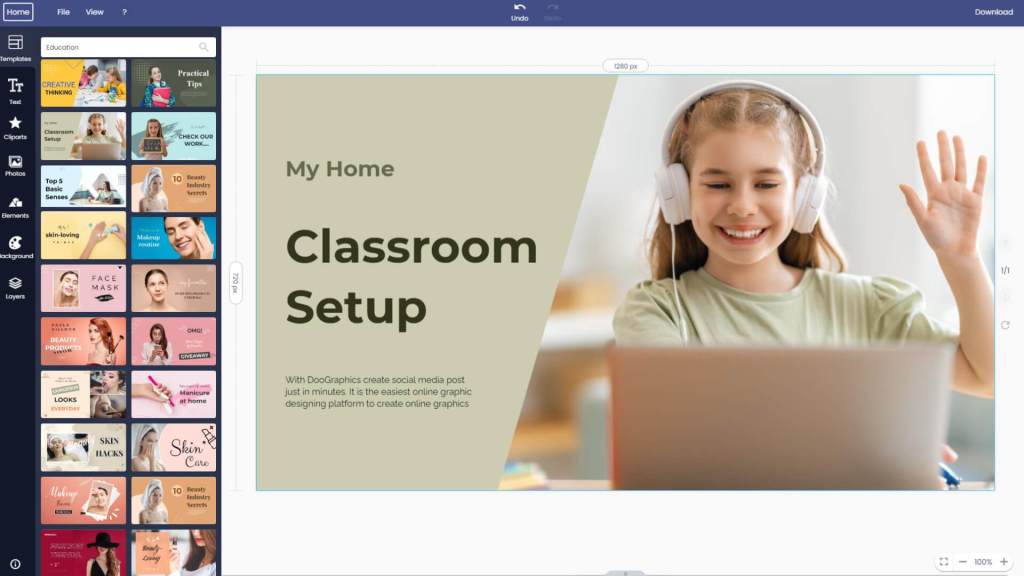With the rise of online education, educational videos have become a popular tool for students of all ages to supplement their learning. These videos offer a flexible and engaging way to access educational content from experts in various fields. In this panel discussion, we will explore the benefits of online educational videos and their impact on alternative schooling and education.
Joining us today are three experts: Dr. Sarah Thompson, an educational psychologist; Mr. James Baker, an online course creator; and Ms. Lisa Martinez, a homeschooling parent.
Question 1: How do online educational videos enhance alternative schooling?
Dr. Sarah Thompson: Online educational videos provide alternative schooling with additional resources that may not be available in traditional classrooms or textbooks. These videos offer different perspectives, demonstrations, and interactive elements that can cater to individual learning styles.
Mr. James Baker: Absolutely! Online educational videos allow students to learn at their own pace and review concepts as needed. This flexibility is particularly beneficial for students who may struggle with certain topics or need more time to grasp complex ideas.
Ms. Lisa Martinez: As a homeschooling parent, I find that online educational videos serve as valuable teaching aids that bring subjects to life in ways traditional materials cannot always achieve. They make learning fun and engage children by presenting information visually or through storytelling techniques.
Question 2: What advantages do online educational videos have over traditional classroom instruction?
Dr. Sarah Thompson: One advantage is accessibility – these videos can be accessed anytime and anywhere with an internet connection, allowing students to learn at their own convenience rather than adhering to rigid class schedules.
Mr. James Baker: Additionally, the variety of content available in online educational videos is vast compared to what could be covered within limited classroom timeframes alone. Students can explore diverse topics beyond the core curriculum or delve deeper into subjects they find interesting.
Ms. Lisa Martinez: Moreover, online educational videos often present real-world applications of concepts which helps bridge the gap between theory and practice. This practical approach makes learning more relevant and engaging for students.
Question 3: How can online educational videos cater to different learning styles?
Dr. Sarah Thompson: Online educational videos incorporate a range of multimedia elements such as visuals, animations, and audio that can accommodate visual, auditory, and kinesthetic learners. Students with different learning preferences can engage with the content in ways that suit them best.
Mr. James Baker: Many platforms also offer interactive features like quizzes or activities within the video itself. These interactive components enable students to actively participate in their own learning process, enhancing comprehension and retention.
Ms. Lisa Martinez: Additionally, students have the option to pause or rewind online educational videos whenever they need clarification or want to revisit a particular concept. This kind of control over the pace allows learners to personalize their experience according to their individual needs.
Question 4: Are there any potential drawbacks or limitations associated with online educational videos?
Dr. Sarah Thompson: While online educational videos are undoubtedly beneficial, it’s important for students not to overly rely on them as standalone resources. They should be seen as supplementary materials that complement other forms of instruction and hands-on experiences.
Mr. James Baker: I agree with Dr. Thompson’s point; it’s crucial for educators to guide students in selecting high-quality educational videos from reliable sources rather than relying solely on user-generated content that may lack accuracy or appropriate pedagogy.
Ms. Lisa Martinez: Furthermore, some children may require additional support when using online educational videos due to distractions or difficulties focusing independently on screen-based content for extended periods of time. Parental involvement is key in ensuring effective utilization of these resources at home.
In conclusion, online educational videos provide alternative schooling and education systems with numerous benefits by offering additional resources, flexibility in learning pace, accessibility anytime/anywhere, diverse subject matter coverage beyond traditional curricula, engagement through multimedia elements and interactivity catering to different learning styles. However, it is essential to use them as supplementary materials and ensure guidance from educators or parents to maximize their effectiveness and avoid potential drawbacks. These videos are valuable tools that can enhance the learning experience for students of all ages in alternative schooling settings.

Leave a comment